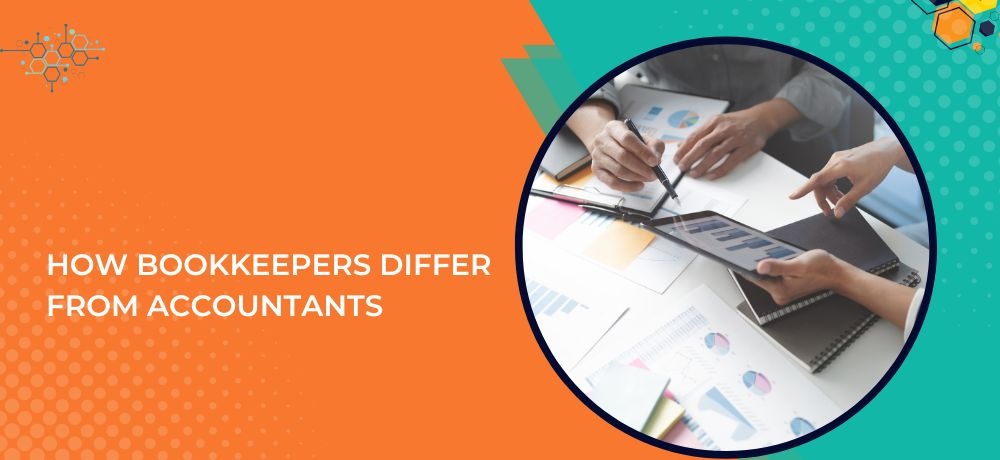How Bookkeepers Differ From Accountants

Small businesses often require financial advice and support in maintaining their books of accounts. Two professions that play a vital role in the financial management of small businesses are bookkeepers and accountants. While both professions are essential in managing a company's finances, they have significant differences that every small business owner should understand.
In this blog, we will discuss the differences between bookkeepers and accountants and how they can help small businesses with their financial management.
1. Who is a bookkeeper?
A bookkeeper is a professional who is responsible for recording and maintaining a company's financial transactions. They perform tasks such as recording daily transactions, reconciling bank statements, invoicing customers, and paying bills. Bookkeepers ensure that all financial records are accurate and up-to-date, which is essential for making informed business decisions.
2. Who is an accountant?
An accountant is a professional who specializes in financial reporting, tax preparation, and auditing. They analyze a company's financial data and provide insights into the company's financial performance. Accountants also provide guidance on tax planning, financial forecasting, and financial strategy.
3. Differences between bookkeepers and accountants
Another significant difference between bookkeepers and accountants is their scope of work. Bookkeepers typically focus on day-to-day financial transactions and maintaining financial records, while accountants provide more strategic financial advice and analysis.
4. How bookkeepers can help small businesses:
Bookkeepers play a vital role in the financial management of small businesses. They can help small businesses with tasks such as payroll services, cloud-based bookkeeping, and financial record-keeping. By keeping accurate financial records, bookkeepers can help small businesses make informed financial decisions and avoid costly mistakes.
In conclusion, both bookkeepers and accountants play crucial roles in the financial management of small businesses. If you’re looking for a small business financial advisor and bookkeeper in Edmonton, Alberta, reach out to Essina Business Financial Services. We specialize in helping small businesses keep their books organized and up-to-date. With our expertise in business finance, as well as our technical skills, we can help you stay on top of all your accounting and financial needs.
We serve clients across Alberta, including Edmonton, Sherwood Park, Spruce Grove, Leduc, and Camrose.
To learn more about the services we offer, please click here. To get in touch with us, please click here or email us at info@essina.ca.